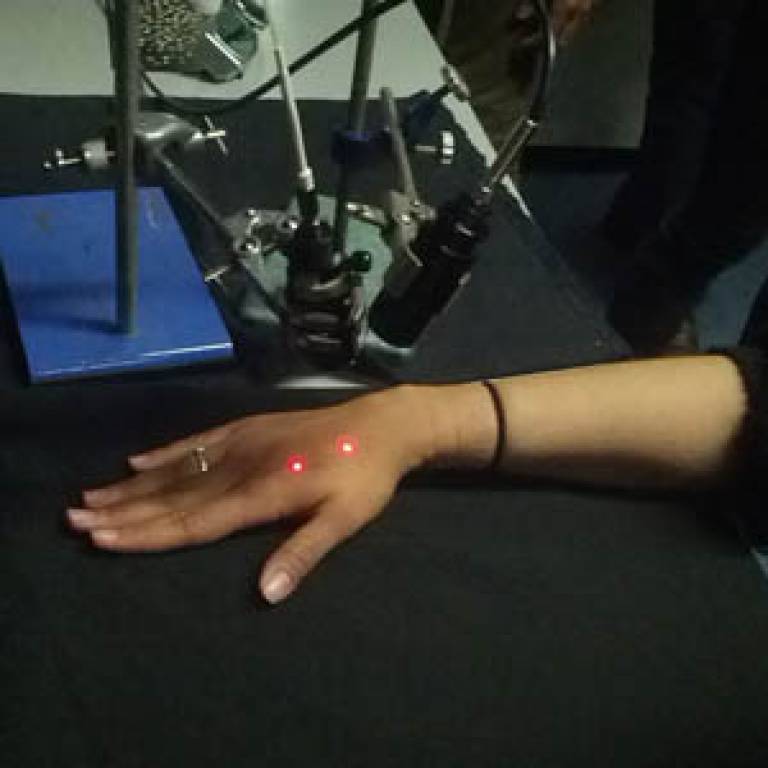Having a romantic partner present can make pain feel worse
21 January 2015
The support of a romantic partner is often advised for painful medical procedures, but new research from UCL, King's College London and the University of Hertfordshire finds that this can actually make the pain feel worse.

The study, published in the journal Social Cognitive and Affective Neuroscience, found that the pain felt by 39 women given 'pinprick' laser pulses on their fingers was not reduced by the presence of their partner. In many cases the presence of a partner made the pain feel worse, and increased more for the women who most avoided closeness in their relationships.
"We were interested in the role of individuals' patterns of seeking or avoiding closeness in their relationships," explains lead author Dr Charlotte Krahé of the King's College London Institute of Psychiatry, Psychology & Neuroscience, "We wanted to test whether this personality construct, termed attachment style, might determine whether partner support decreases or heightens the experience of pain."
For each of the trials, women were given a moderately painful laser pulse on one of their fingers and asked to rate the intensity of the pain. The researchers also measured how the electrical activity in their brains 'spiked' in response to the laser pulses, to examine the relation between pain reports and brain activity. Each woman also completed a questionnaire to measure the extent to which she either sought or avoided 'closeness', emotional intimacy, in relationships.*
The physical and psychological nature of labour pain may be different than other types of pain. Future studies could test how having a partner present during labour affects the pain felt by women who tend to avoid closeness in relationships.
Dr Katerina Fotopolou
The study found that the more avoidant participants were of closeness in their relationships, the more pain they experienced when their romantic partner was present. This was seen both in the pain ratings that participants recorded and in their brain activity. The presence of a partner had no significant effect, good or bad, on the pain felt by women who sought closeness in relationships.
"Overall, this study suggests that partner support during pain may need to be tailored to individual personality traits and coping preferences," explains senior author Dr Katerina Fotopoulou (UCL Psychology & Language Sciences). "Individuals who avoid closeness may find that the presence of others disrupts their preferred method of coping with threats on their own. This may actually maintain the threat value of pain and ultimately heighten individual's pain experience. This hypothesis was further supported by the finding that electrical activity in the brains of these individuals was influenced by partner presence in the same way as their subjective pain report and particularly in areas typically associated with processing bodily threats.
"Previous research has shown that women prefer to have their partners present during childbirth and they make less use of painkillers after labour. The different results of this controlled experiment could suggest that some of the previous results may not necessary relate to the sensation of physical pain, but the broader meanings and needs associated with childbirth. The physical and psychological nature of labour pain may simply be different than other types of pain. Future studies could test how having a partner present during labour affects the pain felt by women who tend to avoid closeness in relationships."
The research was funded by the Volkswagen Foundation and the European Research Council.
Links
- Research paper in Social Cognitive and Affective Neuroscience
- Dr Katerina Fotopoulou's academic profile on IRIS
- UCL Psychology & Language Sciences
- King's College London
Images
- Image of a similar experiment where volunteers' hands were stimulated by 'pinprick' laser pain pulses (credit: UCL)
Media contact
Harry Dayantis
Tel: +44 (0)20 3103 3844
Email: h.dayantis [at] ucl.ac.uk
 Close
Close

